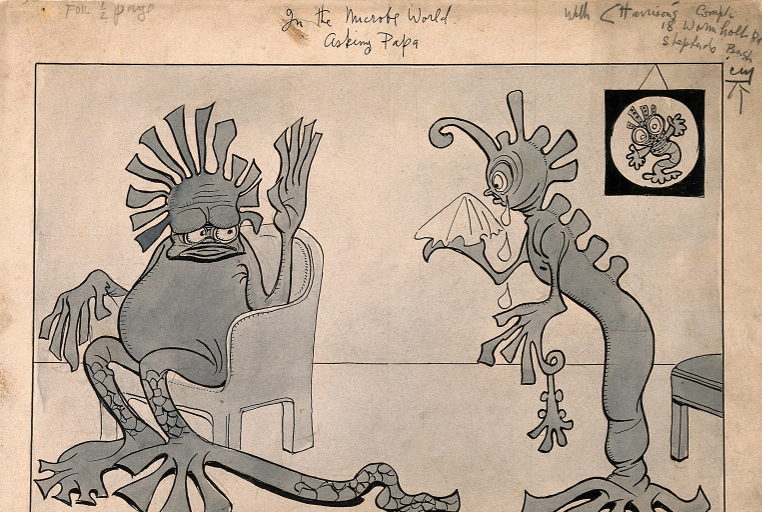We have all been flummoxed by the way in which the coronavirus called COVID-19 has behaved as if it has agency in the world. We say it “moves,” “adapts,” “evades,” and “tricks us.” We attribute an intelligence to it. We marvel at its ability to manifest itself in so many ways. And everywhere we read COVID-19 is an enemy, an invader, and a killer, one that uses stealth to spread itself. We must defeat it, wipe it out, and eradicate it.
Many places on the internet we are implored to understand COVID-19 in order to stay safe—but only until such time as we vanquish this foe of humankind with a vaccine.
It occurs to very few people that we might be in a conversation with this coronavirus which is transmitting information to us by its actions and responding to our actions with its own reactions.
The rise of antibiotic resistance is another reminder that we are, in fact, in dialogue with the natural world. Everywhere—after centuries of practicing an ideology that claims we humans can control nature and with the right tools always and everywhere bend it to our will—we are being reminded that we are part of nature, that we are, in fact, organisms in an environment.
The modern environmental movement reintroduced the idea that we humans must align ourselves with the natural world or perish. But much of that movement is now focused on technical fixes such as electric cars designed to enable humans to live pretty much as they have been in the recent past.
Whether or not a successful vaccine is created for COVID-19—and I have my doubts there will be one—this virus is announcing worldwide that we will not be able simply to live as we have been living. The next pandemic may already be inevitable because of the way we have structured our society. The viruses of the world apparently will not fall silent, but will continue their dialogue with us—or at least attempt to.
And, this is my point: It’s hard to have a productive dialogue with a party that one regards as an invader and a killer, one meant to be driven from human habitats by any means necessary. We will not learn how to live with the reality of a pandemic-prone world by simply assuming that an army of scientists and drug companies will keep us safe.
The coronavirus has loudly and tragically announced an era in which humans must in both their thinking and their actions reintegrate themselves with the natural world. This reintegration is not a “solution” to sickness and death. It is a mitigation strategy that harmonizes us with the reality that we are organisms in an environment.
It is a strategy that will allow us live more comfortably and wisely within the natural world of which we are a part. Let me briefly illustrate what I mean:
We already know that healthy diet, exercise, control of mental stress and strong, positive relationships with friends, co-workers and family will make people more robust when challenged by infectious diseases. Our diet, of course, has in the past been largely a product of nature with a little help from us through selective breeding. Humans are born to move, and movement used to be part of practically every occupation. The tight-knit extended families and kinship networks of the past were double-edged as they provided social and emotional support, but could also be a stifling source of conformism and even harsh treatment. Nevertheless, we humans are made for tight social bonds.
Today, we eat large amounts of dangerously unhealthy processed foods derived from crops grown in depleted soils and animals poisoned by chemicals and drugs. Many of us in wealthy countries lead a sedentary lifestyle. The tight-knit families of the past have largely disappeared, and we are now faced with an epidemic of loneliness. Is it any wonder then that the general health of the population is degraded?
Would it be possible to move toward more robust health, not by going backwards, but by going forward with an eye toward benefits that arise naturally from an agriculture based on creating healthy soil and chemical-free food and from our instinctual need for physical activity and close social bonds? Could we acknowledge that there is a role not just for the individual but for government and other collective institutions to make a healthy life possible for everyone?
We could continue to live in the fantasy that we will conquer the natural world as if it were something outside of ourselves. Or we could embrace a dialogue with that world, with its viruses, with its plants and animals, with the climate of planet earth and bring about the our reintegration with the natural environment to great benefit for both us and the natural world of which we are a part.
IMAGE: A common cold germ asking the father of a neurasthenia bacillus if he can marry her; he is refused on account of the social gap between them. Pen drawing by C. Harrison, 1913. Via Wikimedia Commons
“Proud Parent: You cannot have my daughter. The social gulf is too wide. Remember, you are a mere germ of a common cold. And she is a bacillus of neurasthenia.”






